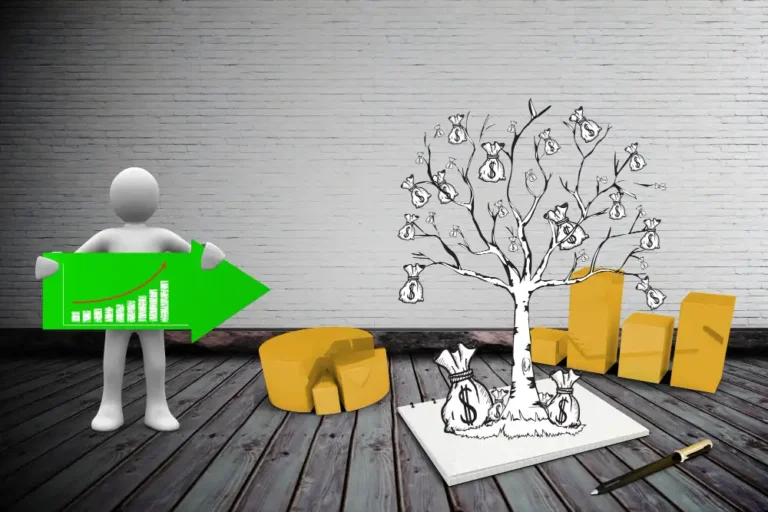Personal finance is the management of an individual’s financial resources, including spending, saving, and investing. It is a crucial aspect of everyone’s life, as having control over your finances can lead to a more stable and secure future.
However, keeping track of your finances can often seem overwhelming and difficult. With various expenses, bills, loans, and savings to manage, it’s easy to get lost and lose control. But fear not, in this article, we will guide you on how to track and manage your finances effectively to achieve financial stability and security.
Assess Your Financial Situation
The first step towards managing your finances is to evaluate your current financial situation. To do this, you need to determine your net worth – which is the difference between your assets (what you own) and your liabilities (what you owe). List down all your assets, including cash, investments, property, and vehicles.
Then, list down all your liabilities, such as credit card debts, loans, and mortgages. Once you have these figures, subtract your liabilities from your assets to get your net worth. This will give you an idea of where you stand financially.
Create a Budget
Budgeting is crucial for managing personal finances, as it helps you keep track of your income and expenses. Start by listing all your sources of income, including your salary, bonuses, or any other sources.
Then, list down all your fixed expenses, such as rent, utilities, insurance, and loan payments. Next, list down your variable expenses, such as groceries, dining out, entertainment, and clothing.
By having a budget, you can identify areas where you can cut back on expenses and save more money. It also helps you prioritize your expenses and prevent overspending. There are various budgeting tools and apps available that can help you create a budget and track your spending.
Keep Track of Your Expenses
Keeping track of your expenses is essential to understand where your money is going. It allows you to identify unnecessary or impulsive purchases and make necessary adjustments to your budget. You can track your expenses by using budgeting apps, spreadsheets, or even a simple pen and paper.
It’s crucial to be consistent with tracking your expenses, whether it’s daily or weekly, to get an accurate picture of your spending habits. You can also segment your expenses into categories, such as housing, food, transportation, and entertainment, to understand your spending patterns better.
Pay Bills on Time
Paying your bills on time is crucial for maintaining a good credit score and avoiding late fees. Late payments can negatively impact your credit score, which can make it challenging to get loans and credit in the future.
It’s essential to set reminders for bill payments or automate them if possible. Make sure to prioritize your payments based on due dates and pay off high-interest debts first.
Build an Emergency Fund
Emergencies can occur at any time, and having an emergency fund can provide you with much-needed financial security. Ideally, an emergency fund should cover at least three to six months’ worth of living expenses.
Start small and save consistently to build your emergency fund over time. Consider keeping your emergency fund in an easily accessible account, such as a savings account or money market account, in case you need it quickly.
Limit Your Debt
Managing your debt is an essential aspect of personal finance. A high amount of debt can lead to financial stress and strain your budget. Avoid taking on unnecessary debt and limit your use of credit cards.
If you have outstanding debts, try to pay them off as soon as possible, starting with the highest-interest debts.
Invest Wisely
Investing is an excellent way to grow your wealth and achieve financial goals in the long run. It’s crucial to understand your risk tolerance and set clear investment objectives before investing your money. Seek guidance from a financial advisor if you’re unsure about where to invest. Make sure to diversify your investments to minimize risk and maximize potential returns.
Conclusion
Managing your finances requires discipline, consistency, and proper planning. By assessing your financial situation, creating a budget, keeping track of your expenses, paying bills on time, limiting debt, building an emergency fund, and investing wisely, you can achieve financial stability and reach your financial goals.
Remember to review and make necessary adjustments to your financial plan regularly to stay on track. With the right approach and mindset, you can take control of your finances and build a secure future for yourself.
FAQs
How often should I review my budget?
It’s essential to review your budget regularly, at least once a month, or whenever there are significant changes in your income or expenses. This helps you stay on track and make necessary adjustments to your budget.
Is it necessary to have an emergency fund?
Yes, building an emergency fund is crucial for financial stability. It helps you avoid going into debt when unexpected expenses arise.
How do I create a budget if my income varies every month?
If your income varies every month, try to create a budget based on your lowest expected income. This will help you prepare for any unexpected dips in income and avoid overspending.
What should I do if I’m struggling with debt?
If you’re struggling with debt, consider seeking help from a credit counseling agency or a financial advisor. They can guide you in creating a debt repayment plan and provide you with valuable advice on managing your finances.
How do I know if I’m overspending?
Tracking your expenses is the best way to identify if you’re overspending. If your expenses exceed your income, it’s a sign that you need to make necessary adjustments to your budget.






